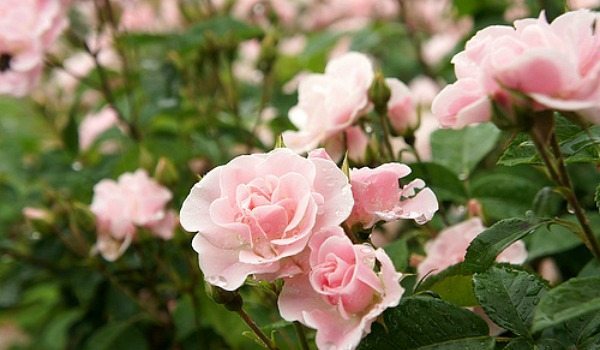
Fertilizing Roses: When to Start and Stop
When to Fertilize Roses
Regardless of the variety of rose, fertilizing is the same. A regular fertilizing schedule is every four to six weeks during the growing season. The climate is the determining factor rather than a specific date for beginning fertilizing roses. As soon as they come out of dormancy and you can see four to six inches of new growth with five to seven leaflets that is the time to fertilize for the first time. From that point on, roses should be re-fertilized every four to six weeks.
At the end of the growing season, if you live in a zone with colder winters, stop fertilizing your roses about eight weeks before the first expected frost. This will give any new growth time to harden so it avoids damage from the frost.
Types of Rose Fertilizers
Roses can be fed with a variety of different types of fertilizers. Depending on its needs, you may use a slow-release type of fertilizer or a fast-acting one. Liquid fertilizers, for example, provide nutrients quickly to save a sickly plant. Fertilizers containing less nitrogen are better for fall feeding as they help promote root growth and next season’s blooms. Here are some other things to keep in mind about rose fertilizers:
- Granular fertilizers can be hard on young plants. Liquid fertilizers work best in this instance to avoid burning delicate roots.
- Roses in containers should be fed water-soluble fertilizers on a more frequent schedule.
- If you use mulch or compost on your roses, you may need to add nitrogen because as these substrates decompose, they rob the plants of nitrogen.
- Your own soil has a lot to do with the health of your roses. A simple soil test can tell you the pH levels and acidity of your soil so you can purchase the right fertilizer that best suits the needs of your area.
Your roses will tell you what they need if you watch them closely. For example, a rose plant with an iron deficiency will have yellow foliage with green stems signally a lack of chlorophyll. Many rose ailments can be corrected with the right fertilizer, but remember that in order for your roses to receive optimal nutrition from their food, you must water the plants thoroughly before and after feeding. This reduces the risk of root burn and enables the plant to absorb its food more readily.